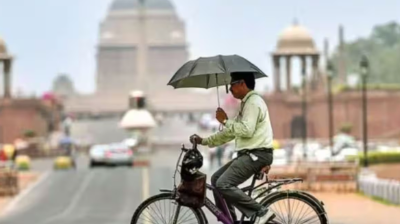The summer months in Delhi have always been known for their scorching heat, but this year, the city has experienced a record-breaking heat wave that has shattered previous temperature records. With temperatures soaring well above 45 degrees Celsius, residents of the capital are feeling the brunt of the heat like never before.
In addition to the discomfort caused by the extreme heat, the rising temperatures have also led to an unprecedented increase in peak power demand. According to reports, Delhi’s peak power demand hit a staggering 8,656 megawatts recently, marking a new high for the city.
The Impact on Electricity Supply
The surge in power demand can be attributed to several factors, including increased use of air conditioning units and other cooling devices as people try to cope with the oppressive heat. The strain on the electricity grid has forced authorities to implement measures such as load shedding and rolling blackouts in some areas to prevent overloading and grid failures.
Despite these challenges, power utilities have been working tirelessly to ensure uninterrupted supply to critical facilities such as hospitals and essential services. However, with temperatures expected to remain high in the coming weeks, it is imperative for residents to conserve energy and use electricity responsibly to avoid further strain on the grid.
The Need for Sustainable Solutions
The record-breaking heat wave in Delhi serves as a stark reminder of the urgent need for sustainable energy solutions. As global temperatures continue to rise due to climate change, it is clear that traditional energy sources are not only unsustainable but also contribute significantly to greenhouse gas emissions.
Investing in renewable energy sources such as solar and wind power is crucial not only for reducing carbon emissions but also for ensuring reliable and affordable electricity supply in the face of increasing power demand. By harnessing clean energy technologies and promoting energy efficiency measures, cities like Delhi can mitigate the impacts of climate change while ensuring a secure energy future for all residents.
Conclusion
In conclusion, Delhi’s record heat wave and peak power demand highlight the urgent need for sustainable energy solutions and responsible energy consumption practices. As we navigate through this challenging period of extreme weather conditions, it is essential for individuals, businesses, and policymakers alike to prioritize environmental sustainability and work towards building a resilient energy infrastructure that can withstand future climate challenges.
